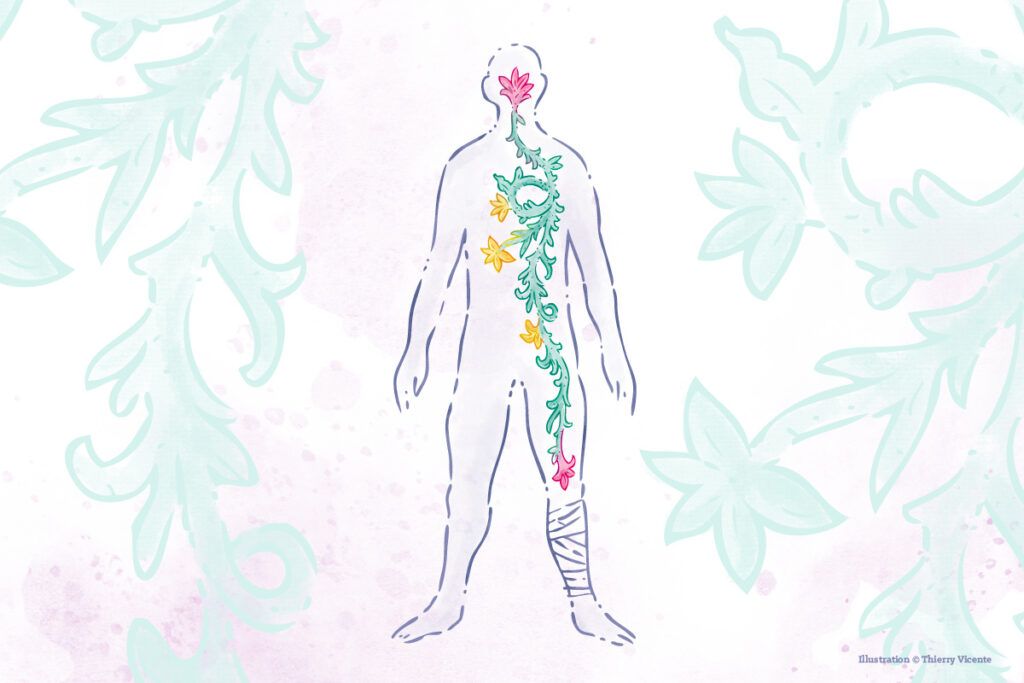[LUM#5] The Healing Brain
Exploring the natural abilities of the human brain to stimulate healing: that is the promise of medical hypnosis. A rapidly growing approach that is finding its place in all health disciplines.

Forget turbans, pendulums, and other "sleep, I command you"tactics. Far removed from these spectacular displays, hypnosis has now become a treatment tool in its own right, widely acclaimed by many doctors. "Our practice is the polar opposite of this 'music hall hypnosis' that conveys a completely false image of hypnosis. It perpetuates the myth of one person's power over another, which is not at all representative of reality," explains Isabelle Nicklès, head of the inter-university diploma program "Clinical and Therapeutic Medical Hypnosis, " a unique course in France offered at the University of Montpellier.
For the specialist, hypnosis is far from being synonymous with surrendering one's will to a third party: "The hypnotized person remains an active participant throughout the session; the practitioner merely accompanies them." To go where? "To a particular state of consciousness and altered attention, a state that is triggered in the context of a relationship of trust and empathy with a third party, in this case the caregiver,"explains the specialist. There is nothing paranormal about it: "This so-called dissociative state is completely physiological; we simply help the brain to enter a natural state for which it is genetically programmed. We are actually addressing a function of the brain that we are not awareof."
A natural state
For Isabelle Nicklès, hypnosis is nothing more than a specific neuro-psycho-physiological means of communication that provides easier access to the unconscious resources of the human being. This is because the brain harbors untapped potential that can be of great help in the context of a treatment program. "The human body has largely untapped self-healing abilities that can be stimulated through hypnosis, which thus contributes to the power of the mind over the body,"explains the specialist. It is a tool that does not replace traditional medicine but complements it in all medical fields. "It should be seen as an amplifier and accelerator of treatment,"summarizes the doctor.
Since the diploma was created in 2008, a large number of healthcare professionals have been trained in medical hypnosis: doctors, midwives, anesthetists, dentists, clinical psychologists, etc., and an increasing number of practitioners are taking an interest in this process. Hypnosis has found its place in the operating room, for example at the Montpellier Cancer Institute, where patients undergoing certain operations can benefit from hypnosis sessions. "In practice, either the patient undergoes a relaxation hypnosis session just before conventional general anesthesia, or the practitioner uses a technique known as hypno-sedation instead of general anesthesia: they sit next to the patient and talk to them throughout the procedure to create what is known as an 'augmented virtual reality system'. This method significantly reduces emotional stress, which is actually the most important component in the perception of pain," explains the specialist. If the surgery allows it, and thanks to this "hypno-sedation," patients no longer need to undergo general anesthesia: they receive only a local or regional anesthetic on the area to be operated on, accompanied by a mild intravenous sedative.
Processing accelerator
Hypnosis in the operating room has proven to be effective: studies show that it reduces the side effects of medication, shortens hospital stays, and allows patients to return to work more quickly. "If used systematically, hypnosis could lead to savings of up to 50% in healthcare costs. It is officially recognized by the social security system for pain management, but is not currently reimbursed. It is also recognized bythe Academy of Medicine, which considers it a 'non-drug medical technique,'"points out Isabelle Nicklès. Many midwives now offer expectant mothers the option of using hypnosis to prepare for childbirth and to facilitate the birth of their baby.
But treating pain with hypnosis is just the tip of the iceberg. "Unfortunately, hypnosis is still underused in the field of mental illness. Yet it is very effective in treating most anxiety and depression disorders, including phobias, addictions, and depression. Provided it is used by a healthcare professional who is qualified to treat these illnesses!" warns the specialist, who is concerned about the possible abuses of illegal medical practice.
Find UM podcasts now available on your favorite platform (Spotify, Deezer, Apple Podcasts, Amazon Music, etc.).